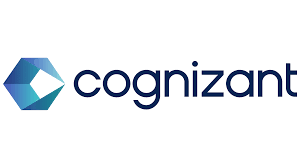
Chennai ITAT Dismisses Cognizant India’s Appeal, Upholds Dividend Distribution Tax on Rs 19,000 Crore Share Buyback In a significant ruling, the Chennai bench of the Income Tax Appellate Tribunal (ITAT) has dismissed an appeal filed by Cognizant Technology Solutions India. The decision has upheld that the company is liable to pay Dividend Distribution Tax (DDT) on its massive share buyback of Rs 19,000 crore, executed under a scheme of arrangement. This development carries implications not only for Cognizant but also for the broader landscape of taxation and corporate actions in India. In this article, we delve into the details of the case and its potential repercussions.
Cognizant’s Share Buyback Scheme: Cognizant Technology Solutions India, a prominent player in the Indian IT services industry, executed a substantial share buyback program worth Rs 19,000 crore. Share buybacks are a common corporate strategy used by companies to return surplus capital to shareholders and enhance shareholder value. However, the tax treatment of such transactions can be complex and has been a subject of contention in India’s corporate taxation landscape.
The Dividend Distribution Tax (DDT) Controversy: The crux of the matter lies in the applicability of Dividend Distribution Tax (DDT) on share buybacks. DDT is a tax imposed on companies when they distribute dividends to their shareholders. In the past, DDT was not levied on share buybacks, leading many companies to opt for buybacks as a tax-efficient way to return capital to shareholders. However, the Finance Act of 2016 introduced significant changes to this tax regime.
The amendment to the Finance Act effectively made DDT applicable to companies on the distribution of income through buybacks, treating it as a deemed dividend. This change aimed to prevent tax evasion and ensure that companies pay their fair share of taxes on such distributions.
Cognizant’s Appeal and the ITAT Decision: In response to the imposition of DDT on its share buyback, Cognizant Technology Solutions India filed an appeal with the Income Tax Appellate Tribunal (ITAT), seeking relief from the tax liability. The company likely argued that its share buyback was structured under a scheme of arrangement and should not be subject to DDT.
However, the Chennai bench of the ITAT has dismissed Cognizant’s appeal, thereby upholding the tax authority’s position that DDT is applicable to the share buyback. This decision sets a precedent for similar cases involving DDT on share buybacks and reinforces the government’s stance on the matter.
Repercussions and Implications: The ITAT’s decision in this case carries significant implications for both Cognizant and other companies contemplating share buybacks in India. Companies will need to carefully assess the tax implications of such transactions and plan their corporate actions accordingly. It also underscores the importance of staying compliant with evolving tax laws and regulations in India’s dynamic business environment.
Moreover, this ruling may prompt further discussions and potential changes in India’s corporate taxation framework. Companies and tax experts will be closely monitoring developments in tax policy to adapt to any future amendments that may impact their financial strategies.
The Chennai bench of the Income Tax Appellate Tribunal’s dismissal of Cognizant Technology Solutions India’s appeal regarding Dividend Distribution Tax (DDT) on its Rs 19,000 crore share buyback under a scheme of arrangement has set a significant precedent in India’s corporate taxation landscape. This decision highlights the need for companies to navigate complex tax regulations carefully and stay compliant with evolving laws. It also underscores the importance of understanding the tax implications of corporate actions, such as share buybacks, in India’s ever-changing regulatory environment.

